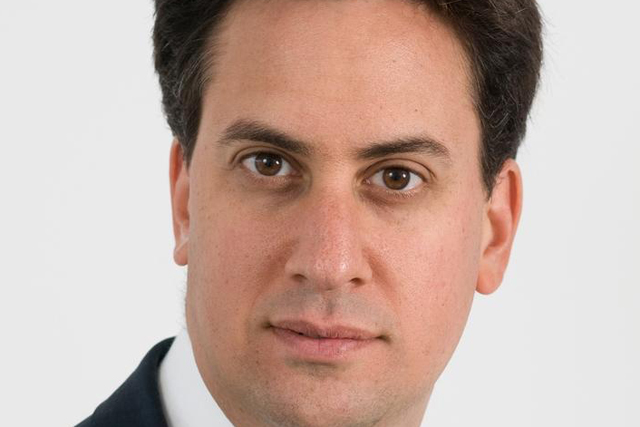The fact we are still talking about the Labour Party leader’s pledge to "have a system in place to shine a light on broken markets" is a testament to the Brewers' Green media machine - in this day and age, its almost impossible to keep a policy debate raging for 72 hours.
More significantly, it also highlights the nervousness brands feel right now about the growing power of the consumer.
 At Ogilvy, we are seeing an increasing appetite from brands looking for a more rounded "offer" that goes beyond traditional consumer marketing. Whilst clients would balk at Ed Miliband’s language around "consumer anger", the more innovative CMOs and heads of comms are already working on integrating their corporate communications, social media relations and branding to directly target an ever more powerful consumer.
At Ogilvy, we are seeing an increasing appetite from brands looking for a more rounded "offer" that goes beyond traditional consumer marketing. Whilst clients would balk at Ed Miliband’s language around "consumer anger", the more innovative CMOs and heads of comms are already working on integrating their corporate communications, social media relations and branding to directly target an ever more powerful consumer.
This change is fundamental to where our business is going and so it’s no surprise that politicians - with their never-ending surveying of voters through focus groups and polling - have started to notice the need to tap into that increasingly powerful consumer voice, harnessing advocacy groups such as the Citizens Advice Bureau.
New phase
In a world where travel companies run Facebook competitions targeted at improving their TripAdvisor scores, and advertisers start paying license fees to carry a "Which? Best Buy" logo on their above-the-line campaigns, it’s clear we are moving into a new phase of media campaigning that blends paid, owned and earned.
This is not just about communicating a company’s ‘purpose’ and making corporate communications more entertaining, relevant and socially sharable. It’s about a wholesale change - and permanent shift - in the purpose of communications about, for and by a company.
Under the lead of Richard Lloyd (a former colleague of mine at No10), Which? in particular has taken a political campaigning approach that many corporates could learn from. Richard himself is probably on telly more times than the whole Shadow Cabinet combined, championing a wide range of causes that raise the profile of customer dissatisfaction in a variety of sectors.
The targeted campaigns run by Which? remind us that reputation equity is a precious commodity – hard to earn and easy to lose. It drives brand growth and, if people like the company character, protects the brand too.
That means brand, marketing and communications departments must work closely to ensure alignment with the company character, using paid and owned media as well as earned to engage all audiences. We’ve found this can be done through a multi-channel mix (including targeted influencer relations and big platform ideas) that delivers a consistent and authentic ‘voice’ of the company.
Even in the sectors causing most public concern - banking and energy – you can see companies trying to improve their corporate-to-consumer offer. The ‘Transform’ programme launched last year at Barclays under Antony Jenkins was about this, as was E.On’s ‘Energy Trilemma’ corporate communications campaign from a few years ago.
Regulatory burden
The challenge for Labour, of course, is that yet another regulatory burden will be seen as a barrier to growth for businesses – even those working hard to address the problem.
In truth, Miliband’s policy announcement alone contains little to fear for industry groups.
Part of this comes from an innate suspicion the business community has over "Red Ed" as The Sun nicknamed him upon winning the party’s nomination) – a weariness that neither he nor Ed Balls have done a terrible amount to counter.
There is nothing anti-business about being pro-consumer. The problem is that an annual report to Parliament – whilst potentially useful in "setting the agenda", as the Labour leader told ‘The Andrew Marr’ show – is only a skin-deep solution.
I suspect it is not intended to be much more. Politicians, who are hardly the most loved bunch, know full well that businesses must work to address their own trust deficits.
But there is much to do. Every time one company has been found seeking to game the system at the expense of the consumer, a whole industry comes under scrutiny.
And when the public lose faith in a whole industry, it is not just brand trackers that take a hit; customers are less likely to switch bank or energy supplier, for example, when they think that they are all "at it", making brand differentiation much harder.
In truth, Miliband’s policy announcement alone contains little to fear for industry groups. A rising tide can lift all boats, and so changes such as this should reward those already working hard to offer a consumer-centric service, whilst calling out those that let their sector down. However, it’s not going to solve the wider issue of how corporate organisations speak to consumers.
As we head into the long 18-month pre-election campaign, we can expect politicians of all parties to be heading on to TV sofas seeking to be the "consumer champion". Fortunately for brands working beyond the


